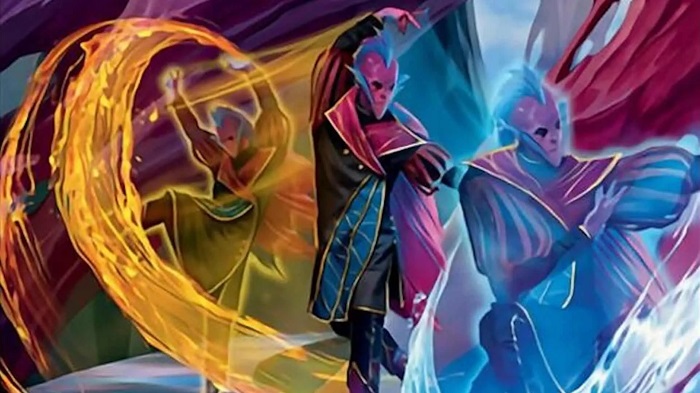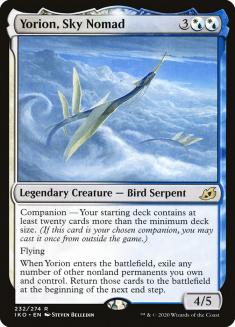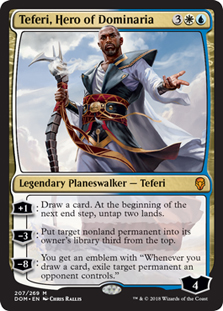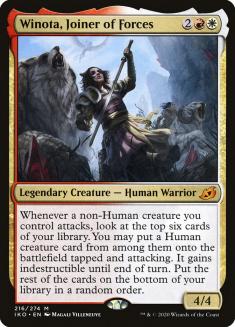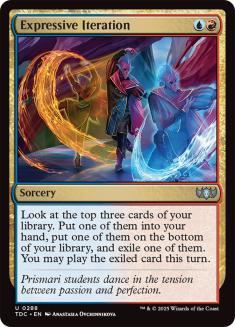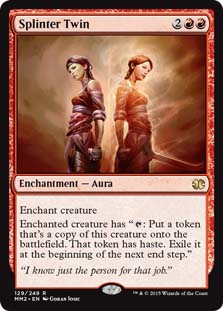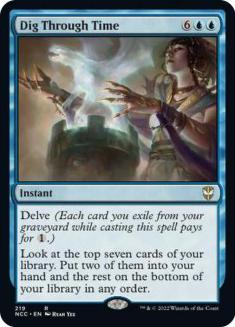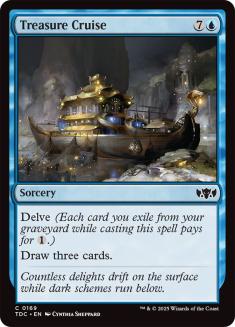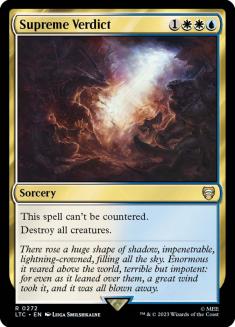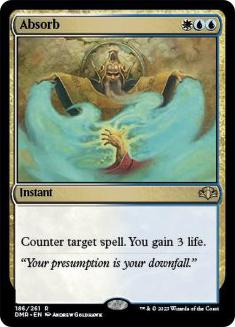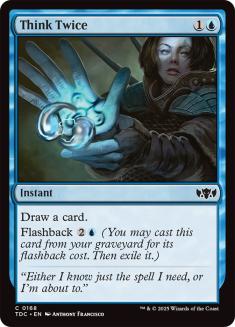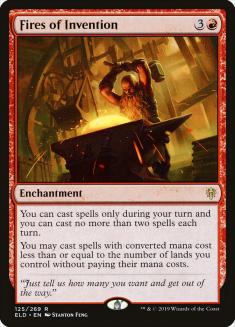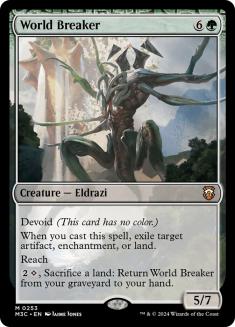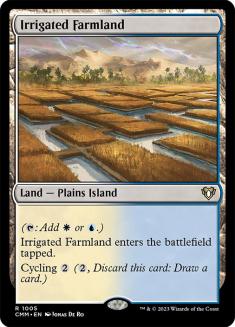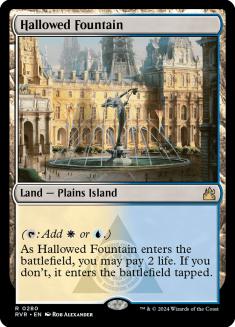Control is the real deal in the Modern format, with the Four-Color variant being the talk of the town. I am still a staunch defender of Esper and Azorius Control in that arena, with solid finishes in two of my last three paper tournaments with them. The SCG Invitational Top 4 late last year, combined with a strong Top 8 finish in SCG Dallas a few months ago, helped reinforce my confidence level in my game once again. The pandemic made many of us rusty, especially those of us with a few extra years of age.
It turns out that Azorius Control in Modern is the same as it has always been, except with superior versions of many of the former staples. It reminds me of extensive studying for a big test, with very difficult sample questions, and then finding the real version to be far easier than the practice. That has been my experience with Azorius Control, taking down threats with Logic Knot and Path to Exile then, and now using Counterspell and Prismatic Ending against the same scenarios today. The threats of the format have not changed, but the control answers have upgraded tenfold.
With my comfort level at an all-time high in Modern, it was time to shift my focus to another competitive format.
Planeswalkers (10)
Lands (34)
Spells (36)

Azorius Control dominates more than Modern. It has a solid reputation in other formats, especially in Pioneer. This was the original control deck when the format was created, taking down enemies with Azorius Charm and hoping to always have a clean battlefield for a Turn 5 Teferi, Hero of Dominaria. That dream has not changed much; however, the tools to clear threats have upgraded in similar fashion to Modern.
Azorius Control’s Upgrades in Pioneer
Azorius Charm was never great and was leaned heavily on without the presence of strong, cheap removal in white. Now with Portable Hole and March of Otherworldly Light, those early-game troubles are a thing of the past. The aggressive decks do not want to see a Hallowed Fountain from their opponent, as they understand the strengthened removal more than anyone.
There is a big difference between putting an attacking creature on top of their library for two mana and exiling any permanent for a cheap as a single white. The versatility of these two white removal spells is off the charts, handling an array of problematic permanents. The card disadvantage from March of Otherworldly Light, and the permanent-cost barrier of Portable Hole, are offset by the card advantage apparatus that Azorius Control enjoys in Pioneer.
This Azorius Control list has adopted Yorion, Sky Nomad, which is the direction I have now moved. This is one piece of the card advantage puzzle, blinking planeswalkers and Omen of the Sea for some delectable value. Outside of Yorion tricks, this version of Azorius Control uses Memory Deluge; Narset, Parter of Veils; and Teferi, Hero of Dominaria to bury the opponent in cards.
With a lineup like this, I do not feel bad pitching early to a March of Otherworldly Light, especially against decks that must connect early to effectively pressure life total. March of Otherworldly Light requires more of a sacrifice in Pioneer than in Modern because of the weaker removal behind it. Portable Hole is great, but it is no Prismatic Ending. Without the ability to go bigger with secondary removal, March of Otherworldly Light is often used for a three-cost (or higher) creature. Many of the other spells naturally create advantage, like the sweepers, as control cards typically do.
Adaptations to Two Banned Cards
This list finished in first in the Magic Online (MTGO) Showcase Challenge a few months ago, but it is the starting point for me as I reconsider my Pioneer control strategy. There have been some recent events on MTGO with Azorius Control finishes; however, this is still my favorite starting list.
The adaptations I have seen other the last three months included additional answers against Izzet decks (including Arclight Phoenix and Izzet Control) and removal to defeat Winota, Joiner of Forces. The Izzet decks have become difficult to defeat, especially Izzet Control, because it produces card advantage at a more effective rate early on. It draws cards on-curve smoothly, and then takes full advantage of Narset.
This series is difficult for Azorius Control since it does not have a built-in natural defense. With Expressive Iteration, Izzet Control can weasel out of the icy grip of Narset with ease. Most Azorius Control decks use Memory Deluge with a similar strength; however, there is a big difference between four and two mana. Expressive Iteration has overshadowed the broken delve draw spells of the format and has seen play in nearly every deck that can produce the colors.
Why Those Two Bans?
It is tough for many of us to point at a fancy Divination as the problematic, must-ban card of the format. That luxury does not extend to Winota, which has been a problem for a long time. The long-standing defense of this four-cost creature is the lack of protection it has, but that argument falls flat with any player who has slung cardboard for a couple of years. Creatures that enter the battlefield, on Turn 3 or Turn 4, and win the game on the spot are problematic.
With a few attackers out, a Winota can create an unwinnable battlefield for the opponent in a blink of an eye. It is not a “Doom Blade it” situation, as the creatures summoned prior demand the attention of the opponent’s removal.
I know I will get some flak for this, but it almost has the Splinter Twin vibe to it. Landing a Winota may not officially win the game on the spot like a Splinter Twin would, but it does push the game out of reach in most scenarios. Splinter Twin decks had excessive blue protection, making it more detrimental to the health of the format. Winota was beatable, although it is not healthy for gameplay, or great for player enjoyment.
Delve Remains
Both Expressive Iteration and Winota were banned a few days ago, shocking the competitive world. Many of us knew Winota was on its way out, and that Expressive Iteration should never have been printed, but the announcement still had people buzzing all day.
Removing Winota was an obvious mood, although I remain shocked they pulled the trigger on Expressive Iteration. I have seen the removal of my beloved Dig Through Time in Modern, and it upset me deeply. It was a necessary act by Wizards of the Coast (WotC), as this card had no business ever existing. Expressive Iteration is in the same boat full of mistakes; however, it is not as egregious as the delve alternatives.
Pioneer has been left alone by the professional community, leading to the reduction of the delve card draw spells. I am confident that when the best of the best get back into the professional Pioneer scene, Dig Through Time and Treasure Cruise will be wreaking havoc. It is only a matter of time until Dig Through Time and Treasure Cruise see extensive play, even in decks that cannot effectively fill the graveyard. These two cards are too broken to ride the bench, but they remain in Pioneer while Expressive Iteration is sent to the nether realm. With Iteration and Winota gone, the metagame power rankings will significantly shift.
Winner: Azorius Control
The biggest winner from the bannings is Azorius Control. I don’t think it’s particularly close. The two most detrimental cards to the traditional control strategy are gone. A four-cost creature which ends the game if not removed instantly created one of the worst matchups for Azorius Control. Having to rely on a perfectly timed removal spell is not what this deck does best.
Since Magic has increased the potency of resolved threats, most creatures demand swift answers. Azorius Control in Pioneer does not have the luxury of allowing creatures to beat them up while holding that Fateful Absence for the perfect moment. Portable Hole hits the Turn 1 play, Absorb counters most things on Turn 3, and Supreme Verdict tries to clean house on Turn 4. Removing Winota from the equation returns business as usual, having control handle each threat as it arrives.
Expressive Iteration provided bulletproof consistency to Izzet Control. I was so desperate for a two-cost card-draw spell, I immediately splashed into Esper Control in Modern to enlist Tainted Indulgence. That card turned out to be mediocre on its own, whereas Expressive Iteration is broken in every shell that can use it. Card draw that can yield a land drop and a great card, all while bottoming the worst card, is the total package.
I have often cursed Iteration’s existence and wished it had landed in my color wheelhouse. Since it did not end up in the Esper world, the banning becomes the next-best thing. It dominates its niche in every format where it is legal, so I believe additional bannings are on the horizon. I know people are sick of playing against it in Four-Color Control in Modern while they are grasping at card-draw scraps.
Winner: Midrange Decks
Control players are not the only ones rejoicing at Iteration’s departure from Pioneer, as it also helps the viability of other decks.
Winota and Expressive Iteration invalidated midrange decks, while only hurting control. Azorius Control is still the biggest winner, since it was next in line at top-tier, but midrange decks can crawl back out from the rock that they have lived under for months.
From ramp decks to Fires of Invention, midrange fans rejoice at the exit of the format’s oppressors, even though they were not obvious. Players complained about Expressive Iteration and the obvious flaws in its design, but I doubt that many attributed that card to their deck’s failure. The advantage and consistency that Expressive Iteration provided, at a cost of only two mana, made it difficult to defeat any deck using it. This is especially true for midrange decks, which famously do not have disruption that effectively hits opposing blue decks.
Even with their standard disruption that can take out creatures, Winota was also a thorn in their side. Control can keep mana open on some turns, but midrange decks have much less capability in that department. These decks thrive on tapping all their resources on their own turn, so as to apply heavy pressure on the opponent. When that is tempered by keeping a set amount of mana open at all times (to kill Winota), the midrange decks can become anemic. With midrange returning to the fold, the number of good matchups for control increases.
After-Ban Adjustments to Azorius Control
The list above is my starting list for control in Pioneer. I am not wowed by any cards from the most recent set, as additional trilands are unnecessary. Since Azorius Control is playing Irrigated Farmland and already had access to Raugrin Triome, Raffine’s Tower will not find its way into the deck.
The only modifications I will make in the early days of testing will modifying the number of Narsets in the main. Narset is the biggest winner in Azorius Control with the bannings, since Expressive Iteration and immediate death from Winota are no longer threats. I will likely move to three copies once I figure out what to cut. It may even go to four eventually, depending on how the format shapes up.
Pioneer is famous for being aggro-heavy, so it is unlikely I deploy the maximum number. Bannings do crazy things to formerly stable metagames, though, so you never know. What I do know is that this list, from Lukas on MTGO, is front and center in my MTGO client.

